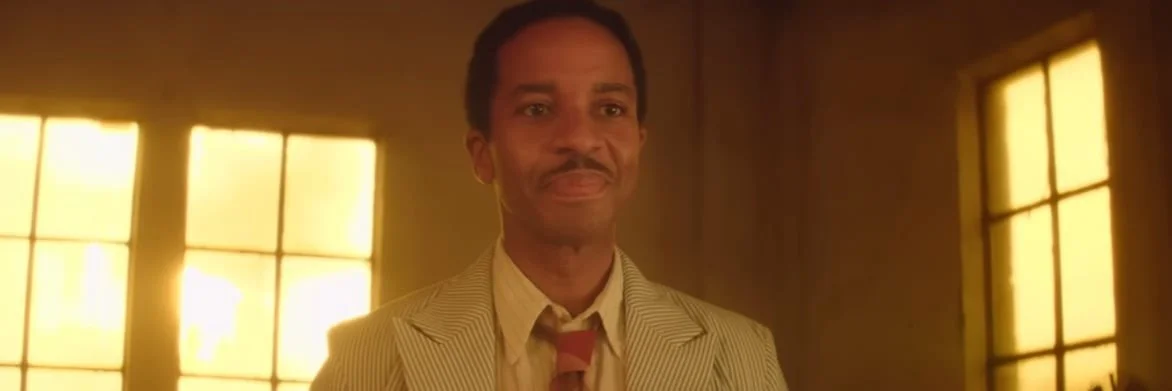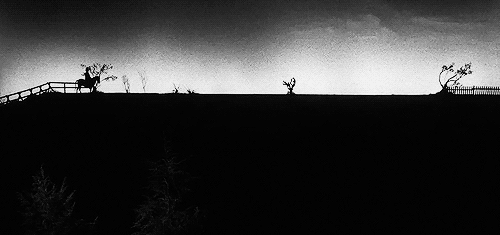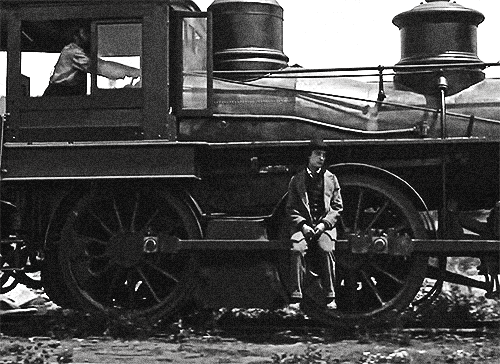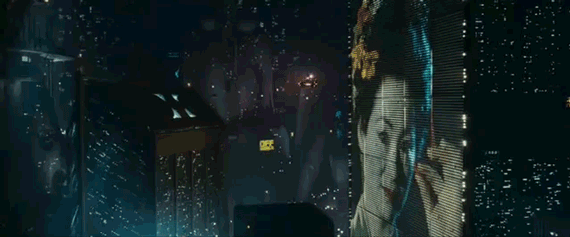In Julian Schanbel's Vincent Van Gogh biopic, "At Eternity's Gate," a priest played by Mads Mikkelsen tells Van Gogh that his work, quite frankly, stinks and that it shouldn't be considered a 'painting,' or at least what the standard definition was back in the 1880s. Van Gogh responds by saying that he feels like he's painting for people that haven't been born yet. This got me thinking about all the great cinematic artists that didn't get their due until much later in life or even after their deaths. It's a very common thing, so much so that I stumbled upon so many classic films that were trashed by film critics upon their release that I decided to just limit it to the all-timers.
Alfred Hitchcock: “Vertigo” and “Psycho”
You could make the case for the inclusion of many Alfred Hitchcock’s movies on this list, but it's the classics that I've chosen; "Vertigo," and "Psycho," both of which garnered garnered controversy for their depiction of violence and sexuality upon release, were not well-met by critics. “Psycho” especially got off to a rocky start with critics, which culminated in reviews calling it "gimmicky" and "tacky." In a particularly noteworthy review, the New York Times said it had “not an abundance of subtlety” and was an “obviously low-budget job.” Judging by some other reviews I've read, the Times review should be considered one of the kinder pans of the film.
Stanley Kubrick: “2001: A Space Odyssey,” “Barry Lyndon” and “The Shining”
You could also make the case for every Stanley Kubrick movie, from "2001: A Space Odyssey" on. '2001' is the film that famously bewildered Woody Allen back in 1968. The famous director had said about Kubrick's masterpiece: "When I first saw 2001, I didn't like it. Three or four months later, I was with some woman in California, and I went to see it again, and I liked it a lot more. A couple of years later, I saw it again, and I thought, "GEE! This is really a sensational movie, and it was one of the few times in my life that I realized that the artist was much ahead of me!" Even Kubrick's astonishing "Barry Lyndon" had a rough time with critics, most of whom complained about the cold, detached nature of the film, or as the NYT would describe it "the slow and self-conscious artistry on-display." Even worse, the director's following film, "The Shining," got Kubrick a Razzie nomination for worst director. Now it's regarded as one of the greatest movies of the 1980's. I am, however, still waiting on that critical reappraisal for "Eyes Wide Shut" to happen.
Charles Laughton: “The Night of the Hunter”
Charles Laughton's debut as a director. The film was such a bomb with critics and audiences that he would never direct another film again. Ironically, one of the most mentioned and influential American films for critics, filmmakers and cinephiles today has to be "The Night of the Hunter." 'Hunter' was a hybrid of genres that can now seem rather mainstream moviegoer, but it was sadly released in the wrong era, back when its brilliant mix of magical surrealism, and horror just didn't exist yet. Bosley Crowther of The New York Times stated the film was "weird" and that it "goes wrong." Now it's all but heralded as a masterpiece and is a requirement for every student at film school. Cahiers du Cinema named it the 2nd greatest movie ever made and BFI's important Sight and Sound Poll has it listed as the 63rd greatest movie of all-time.
Jean Renoir : “Rules of the Game”
I'm not the only person that considers director Jean Renoir's French comedy of manners to be a masterpiece, most hardcore cinephiles do as well. This late ‘30s film, set in the Bourgeois French countryside, was the most expensive French movie ever made at the time. Renoir was coming hot off the heels of an incredible streak of critical successes, which culminated with his classic "La Grande Illusion." So why was "Rules of the Game," a scathing indictment of France's bourgeois 1%, so hated by critics? Well, it doesn't help that the film was temporarily banned by French government for bogus reasons. Upon its release it was also trashed by critics stateside — A New York Times review said "the master has dealt his admirers a pointless, thudding punch below the belt." Renoir has said that the film's failures "so depressed me that I resolved to either give up the cinema or to leave France."
Buster Keaton: “The General”
Buster Keaton's 1926 film "The General" can be seen as a predecessor to George Miller's "Mad Max; Fury Road." Its stunts, even 90+ years later, are astonishing to behold and feel as fresh and inventive as every before. Yet, the reviews back in 1926 were scathingly bad. Variety in their review stated "The General is "far from funny" and that "it is a flop," The New York Times's Mordaunt Hall conceded that "the production itself is singularly well mounted," but also mentioned that "the fun is not exactly plentiful," and "this is by no means so good as Mr. Keaton's previous efforts." The Los Angeles Times reported that the picture is "neither straight comedy nor is it altogether thrilling drama" and went on to add that it "drags terribly with a long and tiresome chase of one engine by another."
Ridley Scott: “Blade Runner”
When it comes to modern-era classics, it's very hard not to include Ridley Scott's "Blade Runner." Not only did it massively under-perform at the box office, but it also failed to impress many critics. it's understandable to imagine how many critics were polarized by the film. The production values were mentioned as a positive but the consensus seemed to be that it just wasn't the action film that was being advertised in the trailers. Instead, Ridley Scott's film turned out to be a slow-moving, meditative sci-fi noir on human existence and what it means to be flesh and blood. Eventually Scott’s director’s cut and final cuts had audiences and critics re-evaluating the film, Since the release of those cuts, "Blade Runner" has gone on to be seen as one of the most important and best sci-fi pictures ever made.












